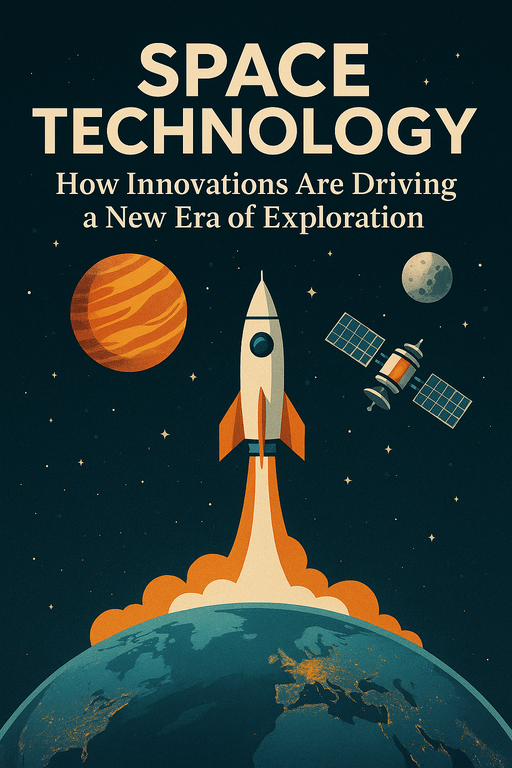For most of human history, space was a dream — a distant mystery that only the most powerful governments could reach. But in the last few decades, space has become more accessible, more ambitious, and more exciting than ever before. Thanks to rapid advances in technology, we are now entering a new era of space exploration, where private companies, advanced robotics, and cutting-edge science are opening doors once thought impossible.
This is not just about rockets and astronauts. It’s about how innovation is reshaping our relationship with the universe and what that means for the future of humanity.
The Rise of Private Space Companies
One of the biggest shifts in recent years is the role of private industry. Once the domain of government agencies like NASA or Roscosmos, space is now a hotbed of private innovation. Companies like SpaceX, Blue Origin, and Rocket Lab have not only lowered the cost of launches but also redefined what’s possible.
Reusable rockets, for example, are one of the biggest game-changers. SpaceX’s Falcon 9 can return safely to Earth and fly again, cutting costs dramatically and speeding up mission timelines. This new business model is turning spaceflight into something more sustainable — and more frequent.
Satellites Are Getting Smaller and Smarter
Another area of rapid growth is satellite technology. Today, satellites are not just tools for weather reports or GPS. They are essential for everything from internet access to climate monitoring. And they’re getting smaller, cheaper, and more efficient.
CubeSats — tiny satellites that can fit in a shoebox — are being launched in swarms to provide global coverage. These miniature marvels are helping researchers track wildfires, monitor oceans, and even test the possibilities of deep space communication. The miniaturization of space tech means that even universities and startups can now take part in orbital science.
Mars, the Moon, and Beyond
We’re no longer just orbiting Earth. Thanks to robotic missions and advanced spacecraft, we’re now actively preparing for human exploration of other planets. NASA’s Artemis program is working toward returning humans to the Moon, this time to stay and build a long-term presence. Mars is next on the list, with missions like Perseverance and future crewed journeys already in planning stages.
Meanwhile, the James Webb Space Telescope, now in operation, is giving us deeper insights into the early universe than ever before. These projects aren’t just scientific milestones — they’re shaping how we think about life, existence, and our place in the cosmos.
Space Tourism: A New Frontier
Once considered science fiction, space tourism is now becoming reality. Companies are offering suborbital flights where passengers can experience weightlessness and see Earth from space. While still expensive, the market is expanding, and future developments may make space travel available to more people.
This shift isn’t only about adventure — it’s about expanding the economy beyond Earth. As technology improves and safety increases, the idea of space as a destination, not just a frontier, begins to take shape.
The Ethical and Environmental Questions
As we push further into space, new ethical questions emerge. Who owns the Moon or asteroids? How do we avoid repeating the environmental mistakes we’ve made on Earth? Space debris is already becoming a major concern, with thousands of inactive satellites and fragments orbiting our planet at high speeds.
Innovations like satellite deorbiting systems and space traffic management are becoming critical. At the same time, international cooperation will be key to ensuring that exploration remains peaceful and beneficial for all of humanity.
Final Thoughts
The new era of space exploration is not just about reaching farther — it’s about thinking smarter. Technological innovations are unlocking possibilities that once seemed unthinkable, from living on other planets to making space accessible to everyday people. But with this power comes responsibility — to explore ethically, sustainably, and with a long-term vision for the future.
Space is no longer the final frontier — it’s the next chapter. And it’s being written today, with the help of science, imagination, and the endless human desire to discover what lies beyond.






Leave a Reply